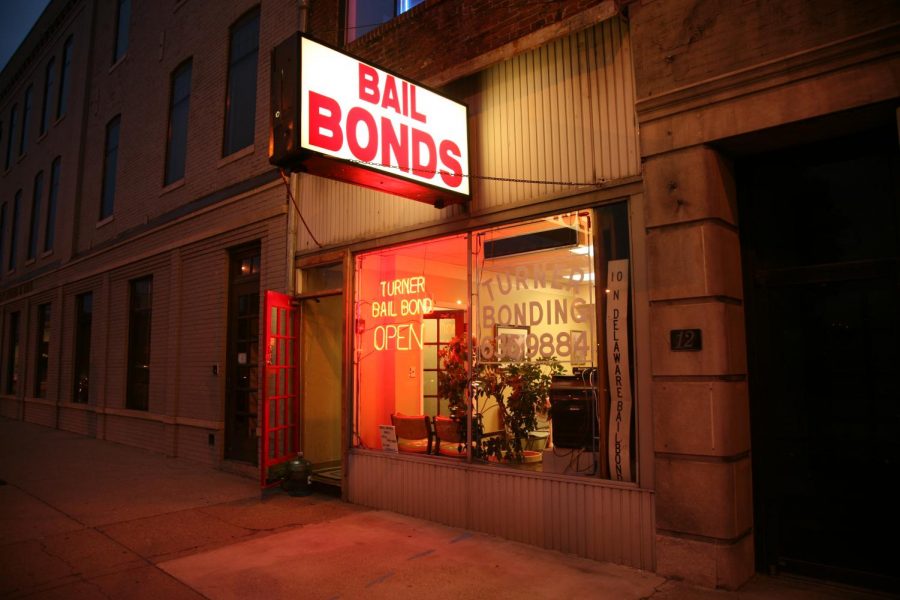Cash Bail Practices Worsen Inequality in the Criminal Justice System
Opinion
Daniel Schwen
Turner Bail Bonds is set up in Indianapolis. Bail bonds agencies like Turner Bail Bonds pay for a defendant’s bail, then charge them a percentage of the bail to ensure that they will show up to court when ordered to.
February 13, 2020
There are numerous inequalities in our country that stem from the lack of wealth, and one of the most glaring arenas takes place in our criminal justice system. Recently, one branch of this criminal justice inequality regarding the subject of bail garnered attention as a result of a bail reform bill being passed in New York. The bill removes the option of cash bail for many misdemeanors and nonviolent crimes.
The United States is a world leader in mass incarceration, and the cash bail system is a major contributor. There are more than half a million people in pretrial detention, and many are there because they can’t afford bail. The median amount of bail in the nation is $10,000, which is often unaffordable for the incarcerated, who face a large income gap compared to the wealthier and non-incarcerated.
Because of this flagrant inequality ingrained within the cash bail system, the wealthy can slide by easily while their less fortunate counterparts don’t have the same pleasure and are left with terrible options. Those who cannot afford bail may stay in jail, which has a wealth of consequences even outside the bars. Low-income incarcerated individuals may lose their jobs, their spots at homeless shelters, and their ability to support and live with their kids. Not only must they experience the devastating experience of being jailed, but they also must face the multitude of consequences waiting for them outside.
Another option is pleading guilty, which many are forced to choose to avoid the previously mentioned repercussions of staying in jail. Innocent people are convicted for crimes they never committed, which goes against the foundational principles of our justice system. Pleading guilty has its own implications in the futures of the wrongly sentenced by making it hard for them to find housing, employment, and access to living necessities because of the stigma associated with a criminal record.
The last option they may have are bail bondsmen. The way the commercial system (which only exists in the U.S. and the Philippines) works is that the bondsman agency pays the bail for a defendant and charges them a nonrefundable premium, usually 10% of the bail. This system has several unfair complications like the unethical interest rates that can put the people who needed financial help in debt. Even outside the monetary complications are the horrendous conditions for “bounty hunting.” When individuals don’t show up for their court dates, bounty hunters can be sent by the bondsmen to go after them with low levels of regulation. In 2017, armed bounty hunters stormed Eugene Mitchell’s family home for missing a court date and drove him away to a different county without a proper warrant to arrest him. No individual should have to resort to paying someone even if they end up not being convicted or face the possibility of a destructive incident like Mitchell’s.
Cash bail is one of the most blatant executions of inequality within the justice system that we must address. To solve this issue, the government should focus on reforming our justice system to be less focused on confinement and punishment and more focused on aiding disadvantaged individuals in positive ways. This process also necessitates abolishing the cash bail system. Instead of leaving people locked up or using risk assessments that can be influenced by bias to hold them in jail before even being convicted, we should release individuals before their trial, give them reminders of court dates, and provide transportation for those times. Aiding people rather than restricting them is the only way to ever make any real change.




Srilekha Cherukuvada • Feb 13, 2020 at 8:35 pm
Shawk this is SO good!! You’re such an amazing, thoughtful, insightful writer LY <3 🙂